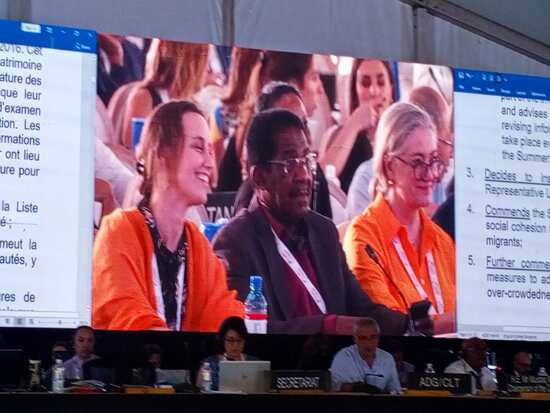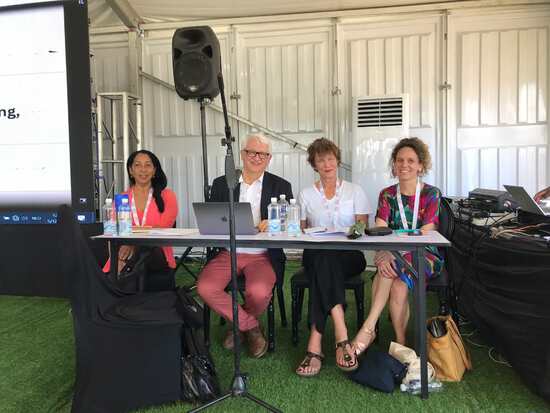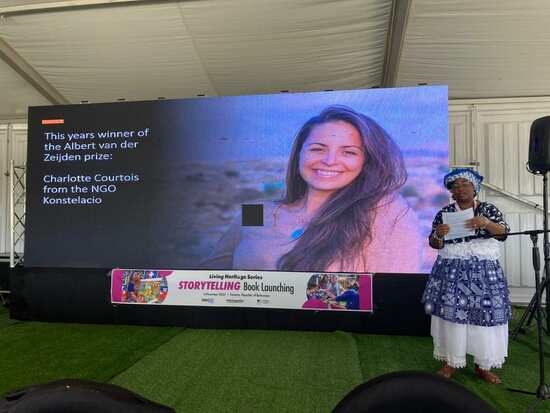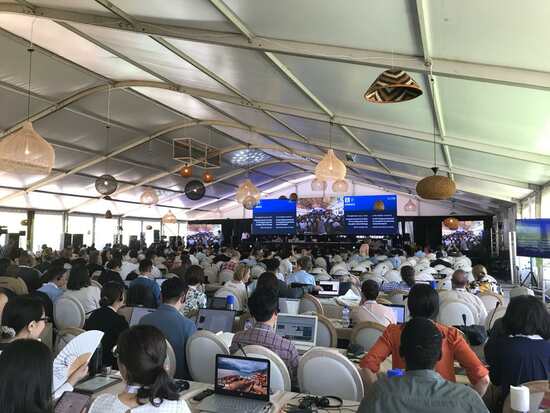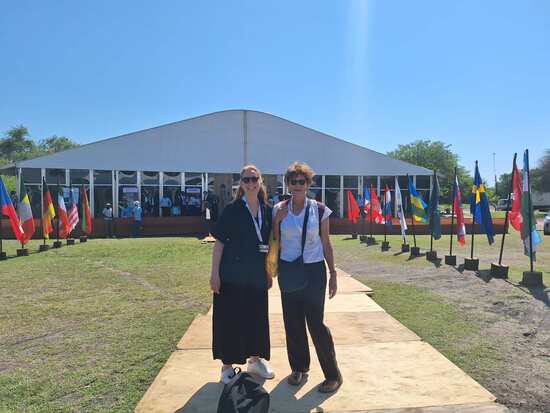
International credits for the Netherlands
This year there were two highlights for the Netherlands: Summer Carnival Rotterdam and Traditional Grassland Irrigation are included on the Representative List of the Intangible Cultural Heritage of Humanity!
The Summer Carnival nomination was complimented by the Evaluation Body because it clearly shows how intangible heritage can bring people from different cultures together. In addition, Humphrey Euson was present as a representative of the Summer Carnival. In his speech he emphasized how the Summer Carnival is a celebration of cultural diversity.
The multinational nomination of Traditional Grassland Irrigation also explicitly stated that the file was a good example of intangible heritage that contributes to the Sustainable Development Goals. This dossier was submitted by Austria, Belgium, Germany, Italy, Luxembourg, Switzerland and the Netherlands.
You can read more about Summer Carnival and Traditional Grassland Irrigation on our website.
Curious about which other forms of intangible heritage have been added? Then look here .
ICH NGO Forum
As an accredited NGO with UNESCO, KIEN is a member of the ICH NGO Forum. This time the annual symposium was dedicated to the twentieth anniversary of the UNESCO Treaty. The focus was therefore on cases in which assurance was central. Based on research, Susanne talked during the symposium about the method that the board of Summer Carnival Rotterdam used to get younger members onto the board. In addition, the annual Committee meeting is also the time when the General Assembly of the Forum takes place. With all these different NGOs together, a lot of networking takes place, new contacts are made and collaborations are set up.
Working group ICH, Climate Change and the Environment
What started as presentations at the Forum symposium in Rabat (2022) grew into a working group on intangible heritage and climate change. Jet is involved in the working group based on her research into ecological sustainability and presented a poster in that role. The poster focused on the Water & Land project (in collaboration with CAG) and case studies on intangible heritage and ecological sustainability in the Netherlands and on Bonaire. Think of Wilster flaps and cactus hedge braiding. Over the next two years, the working group will work on a declaration to draw strong attention to the urgency of the subject of climate change and on a publication with good examples.
Albert van der Zeijden Prize
After our colleague Albert van der Zeijden passed away in 2021, colleagues from the ICH NGO Forum took the initiative to create a prize in his name. A beautiful and emotional moment to reflect on this loss.
This year's prize was awarded to Charlotte Courtois, who wrote the best article as a young professional in the latest edition of #HeritageAlive. This edition focuses on Storytelling and can be found here .
20 years of the UNESCO Treaty: looking back and forward
It was a party in Botswana! We were treated to performances by dance groups, Botswanan cuisine and enjoyed the special nature that the country has to offer. During the meeting, the developments of the UNESCO Treaty were looked back on and there are many. Particularly in recent years, there has been much discussion about the accessibility of the various international lists and adjustments have been made. It is precisely because these adjustments have already been applied (including less strict criteria and a dialogue process) that all nominations this year were assessed positively by the Evaluation Body. This also raised questions: does not too easy approval of nominations contribute to the focus on placing intangible heritage on international lists? Although opinions remain divided on this issue, the Secretariat clearly stated that 2023 will not set a precedent. The new nomination forms will be made available from 2024, so this will raise new questions and challenges. The UNESCO treaty will therefore certainly continue to develop.
Guarantee actions on an international stage
The development can also be seen in other places. Following research into Article 18 of the Convention, plans have been developed to improve the Register of Good Examples of Guarantee. In addition, an online platform will be developed to make assurance actions more visible. The Treaty is ultimately about safeguarding intangible heritage and these initiatives attempt to give this more of an international platform.
We also work with a Register of Good Examples of Guarantee in the Netherlands. At KIEN, we keep a close eye on international developments.
Other themes
The Evaluation Body reports every year on striking themes that emerge from the various files. In addition, the UNESCO Secretariat is taking the initiative to conduct explorations on certain themes. The most important of 2023 were:
- Economic dimensions of intangible heritage: Livelihoods - intangible heritage - Culture Sector - UNESCO
- Climate change and safeguarding intangible heritage
- Securing intangible heritage in an urban environment
- The role of women in intangible heritage was strongly highlighted in many nomination files
- Knowledge transfer within families was central to approximately half of the nomination files
- In many files the relationship between intangible heritage and the natural environment was mentioned and assurance actions were formulated on this point.
Next year the Intergovernmental Committee session will take place in Paraguay.
